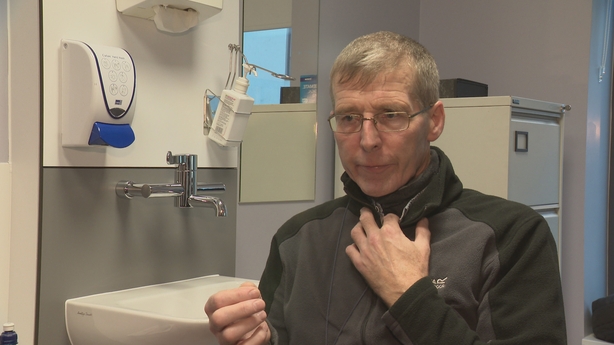A support group has been set up to help people who have had their voice boxes removed, to raise awareness of the cancer of the larynx and show them that there is life after a laryngectomy.
Over 1,000 people are diagnosed with mouth, head or neck cancers every year.
Laryngectomy, or the removal of the voice box, is life-changing surgery which affects how a person breathes, speaks and swallows.
Around 30 neck cancer survivors have attended a Christmas meeting of the support group in St James's Hospital, Dublin, along with their families and carers.
Jeanette Lawlor said she was devastated when she was diagnosed with laryngeal cancer in June 2019.
But she said the people she has met along her cancer journey have helped to lift her up, she said.
Ms Lawlor explained that she lives a relatively normal life now, and can speak with the aid of a valve in her throat.
Patrick Burke travelled from Laois to attend his first meeting in St James's Hospital.

He was left with no voice after his surgery and has worked very hard to regain his speech.
For the past nine months, Mr Burke has been working with St James's Hospital speech and language therapists and now uses an electrolarynx and a valve.
"I had no voice for six months. I had to become a very good listener, I used an iPad," he said.
Around 32 laryngectomies are carried out here in St James's hospital every year.
Included in symptoms to look out for are changes in voice, hoarseness and difficulties swallowing, Sorcha McManus, a senior speech and language therapist said.
"It’s very rewarding to meet past and present patients in the support group to see how far they’ve come, with many having returned to work," she added.
The support group shows newly diagnosed patients that there is "light at the end of the tunnel" and there is "life after a laryngectomy," Nurse Ciara McClean said.







